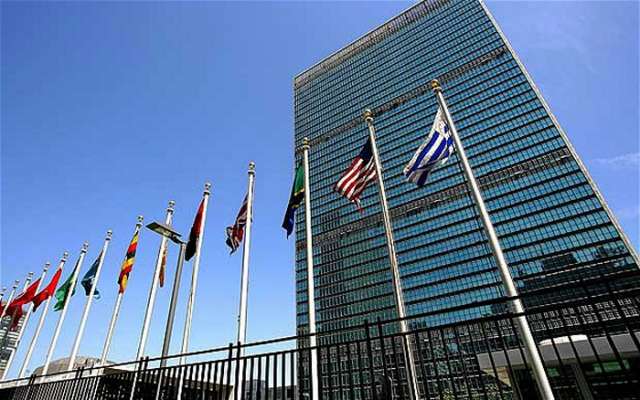But after 70 years, the Telegraph asks: how has the UN fared over the last seven decades?
It is in the nature of the beast that the UN can be blamed for the faults of its members, or take the credit for humanity’s advances that would have happened anyway.
So there will never be definitive answer to the question of whether it has been a success or a failure.
But here are some pointers in both directions.
Successes
Peace
The big one – and the record is not so bad as we sometimes make out. Thanks in part to UN conflict resolution and peacekeeping initiatives, the number of people dying in conflicts has declined rapidly since 1945 – worldwide, fewer people died in conflict in the first decade of the 21st century than any decade of the 20th.
Prosecutions of Charles Taylor and Slobodan Milosevic
The Liberian and Serbian leaders were both prosecuted for war crimes by tribunals set up by the United Nations, with Taylor sentenced to 50 years’ imprisonment. Milosevic died of a heart attack before a verdict was reached, but the precedent that dictators can face impartial, rather than victors’, justice has been established.
Ending famine
The world is an unequal place, with large parts beset by poverty and hunger, and thousands still die of malnourishment every year. But as with war, the numbers have fallen from the 20th century, when more than 70 million died from famine. Again, intervention by the UN’s World Food Programme, Food and Agriculture Organisation and UN-sponsored emergency aid management can take some of the credit.
South Africa, Kazakhstan, and the other countries who gave up The Bomb
Never before in history have countries voluntarily decided to give up weapons because they were too efficient. South Africa did this at the end of apartheid, and Kazakhstan when the Soviet Union fell apart. A number of other countries have committed to ending nuclear weapon research programmes and submit to inspections by the UN International Atomic Energy Agency.
Protecting the Galapagos Islands …
... and 1,000 other World Heritage sites. Since the Islands became one of 12 initial sites named by the UN cultural organisation Unesco in 1978, its listings have become the international benchmark for protection of the world’s most important natural and historic places. That has allowed tourism and its economic benefits to develop in step with conservation.
Marine Iguana Galapagos Islands Ecuador
Failures
Rwanda Genocide
The UN had an “Assistance Mission” for Rwanda in 1994, which knew about the impending genocide, but its peacekeepers failed to stop the majority Hutus going on a murderous rampage and killing almost a million members of the Tutsi minority. The imprecation “Never Again”, which after the Holocaust hung over the founding of the UN, was never more studiously ignored.
Rape and child sex abuse in the Congo
UN peacekeepers were accused of paying women and young girls they were supposed to be protecting for sex, and sometimes raping them, in the Democratic Republic of Congo in early 2005. Subsequent reports found there had been similar allegations in countries ranging from Cambodia to Bosnia to Haiti.
Spreading cholera in Haiti
Genome testing showed that the most likely source of the world’s worst recent outbreak of cholera, which swept through Haiti after the 2010 earthquake, was a Nepali peacekeeping force. Although more 700,000 were infected and 8,000 died, the UN claimed immunity from a subsequent law suit.
Iraq oil for food programme
This was the programme whereby Iraq could gain relief from international sanctions by selling oil through the UN, which would supervise the delivery of food and medicine with the resulting cash. However, large sums of money were channelled into private pockets through the programme – with some even being used to buy influence at the UN itself. It is regarded as the worst financial scandal in UN history.
Srebrenica
The massacre of more than 8,000 Bosnian Muslim men at the hands of Serb forces in Srebrenica in 1995 was an even more specific failure for the UN than Rwanda - in that the town had been declared a “safe zone” and given its own Dutch protection force precisely to stop this happening. The sight of the Dutch commander drinking a toast with General Ratko Mladic, the Serb commander, further damaged the UN’s reputation.
More about:
















































